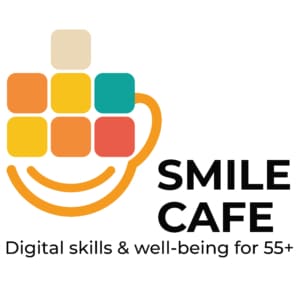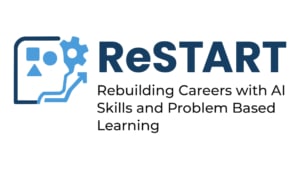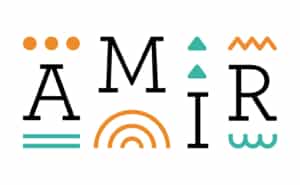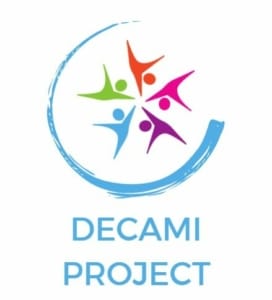© 2022 eurecons
EureCons – Projekte
Die EureCons Förderagentur GmbH leitet und beteiligt sich an verschiedenen Projekten, die sowohl national als auch international ausgerichtet sind.
Im Rahmen von europäischen, nationalen und internationalen Projekten unterstützen wir unsere Kunden von der Ideenfindung über die Partnersuche bis hin zur aktiven Unterstützung im Gesamtmanagement der Fördermittel.
Ein effizientes und nachhaltiges Qualitätsmanagement ist selbstverständlich integraler Bestandteil unserer Beratung.
Neben unser Funktion als externer Berater, sind wir häufig auch operativer Bestandteil oder Leadpartner von Verbundprojekten und wirken somit an europäischen Innovationen aktiv mit. Der Fokus bei den europäischen Projekten liegt derzeit auf Programmen wie Horizon Europe, Erasmus +, ESF und Interreg.
Die Eurecons Förderagentur GmbH versteht sich als Schnittstelle zwischen Beratung und Forschung, sowie als Türöffner für Europa.
im Detail…
Neben der klassischen Fördermittelberatung bietet die EureCons Förderagentur GmbH ihren Kunden eine Kombination aus Beratung zur nationalen Förderung und aktiver Unterstützung bei der Identifizierung von Vertriebskanälen in Ländern, in denen die EureCons Förderagentur GmbH über langjährige Kooperationspartner verfügt. In den jeweiligen Zielländern identifizieren wir Kunden, Lieferanten, Kooperationspartner und politische Unterstützungsstrukturen. Wir organisieren Vor-Ort-Besuche, Produktpräsentationen und Teilnahme an Ausschreibungen. Darüber hinaus bietet die EureCons Förderagentur GmbH Partnerschaftsprojekte an, die Dienstleistungen, Workshops, Schulungen und Beratung zu innovativen Ansätzen zur Ausrichtung von Marketing und Vertrieb verschiedener Produkte umfassen. Unsere Berater können Sie mit verschiedenen Märkten weltweit verbinden. Wir helfen Unternehmen beispielsweise beim Aufbau von Niederlassungen in den baltischen Ländern (Litauen, Lettland und Estland), Polen, Slowkei, Tschechien, Italien, Rumänien, Bulgarien, aber auch Großbritannien.
Mio Euro Fördervolumen
Organisationen in unserem Kontaktfeld
Finanzierungsregelungen
Europa-Länder
Erfolgsquote bei Projektanträgen
EureCons – Projekte
im Detail
Projekt Smile Cafe
Zeitraum 2025 – 2027
ERASMUS+ KA220-ADU – Cooperation partnerships in adult education (KA220-ADU)
SMILE CAFE (acronym SMILE)
Start 01/10/2025
End 30/11/2027
Duration: 26 m.
Lead partner and coordinator:
ALP – AKTIVIEREN VON LEADERSHIP POTENTIAL (Austria)
Partners:
Progetto Crescere Soc. Coop. Soc. (Italy)
Baltic SKILLS (Lithuania)
EureCons Förderagentur GmbH (Germany)
Smile Cafe
ERASMUS+ KA220-ADU – Cooperation partnerships in adult education (KA220-ADU)
SMILE CAFE (acronym SMILE)
Start 01/10/2025
End 30/11/2027
Duration: 26 m.
Lead partner and coordinator:
ALP – AKTIVIEREN VON LEADERSHIP POTENTIAL (Austria)
Partners:
Progetto Crescere Soc. Coop. Soc. (Italy)
Baltic SKILLS (Lithuania)
EureCons Förderagentur GmbH (Germany)
Aim and objectives:
-Equip OLPs 55+ with essential digital and transversal skills for their wellbeing and reduce isolation
-Enhance the expertise of professionals working with OLPs 55+ to tackle challenges of digital
education addressing the needs of an aging society
-Establish SMILE CAFE Hub as an informal education resource to enhance digital literacy and well being for OLPs 55+ with physical and virtual elements database of resources to provide tailored support and foster engagement among participants
The results of the project will be broadly disseminated online and offline, including 4 dissemination events in all countries
Projekt ReSTART
Zeitraum 2025 – 2027
ReSTART: Rebuilding Careers with AI Skills and Problem Based Learning
Start date: 08.12.2025
End Date: 07.12.2027
Duration – 24 months
Coordinator: EureCons Förderagentur GmbH (Germany)
Partners:
POLARIS S.R.L. (Italy)
RRINOVA OÜ (Estonia)
Higher School of Transport „Todor Kableshkov“ Bulgaria
Baltic SKILLS (Lithuania)
Lubelska Akademia WSEI (Poland)
ReSTART
ReSTART: Rebuilding Careers with AI Skills and Problem Based Learning
Start date: 08.12.2025
End Date: 07.12.2027
Duration – 24 months
Coordinator: EureCons Förderagentur GmbH (Germany)
Partners:
POLARIS S.R.L. (Italy)
RRINOVA OÜ (Estonia)
Higher School of Transport „Todor Kableshkov“ Bulgaria
Baltic SKILLS (Lithuania)
Lubelska Akademia WSEI (Poland)
Aim
The ReSTART project aims to empower unemployed adults with job-relevant AI skills and human-AI collaboration competencies, ensuring their reintegration into the labor market, particularly in remote and hybrid administrative, customer service, and virtual assistant roles. It develops an accessible, problem-based AI learning program, a digital platform with micro-credentials, and workplace exposure opportunities, fostering AI workforce readiness and policy adoption across Europe.
Implementation:
The ReSTART project will implement:
(1) AI Skills Development & Career Pathways – AI self-assessment, digital AI training scenarios, and micro-credentials;
(2) Trainer Capacity Building – AI-focused ToT, digital learning hub, and peer-learning network;
(3) AI Training & Workplace Exposure – hybrid AI training, industry shadowing, and employer validation;
(4) Dissemination & Sustainability – AI workforce policy recommendations, open-access learning platform, and EU-wide outreach
Results
The ReSTART project will deliver:
(1) AI self-assessment tool & career pathways, guiding unemployed adults into AI supported job roles;
(2) AI learning platform with 20+ problem-based scenarios & micro-credentials, ensuring job readiness;
(3) AI-trained educators & digital Trainer Network, expanding workforce upskilling;
(4) 150+ trained learners & industry shadowing opportunities, enhancing employability;
(5) AI policy recommendations & open-access resources, ensuring long term impact.
Projekt AMIR
Zeitraum 2023-2027
Download AMIR PROJECT – Transnational Partners Meeting – Country Report
*The main objective of the AMIR project* is to promote the integration of
third-country nationals (TCNs) into European society through the
development, testing, and evaluation of innovative pilot programs. These
programs focus on housing, employment, and financial literacy, with the aim
of fostering full social and economic inclusion of TCNs at the local and
regional levels. The project duration is 30 months, and it is being
implemented in eight EU countries, including Spain, Italy, Greece, Sweden,
Germany, Hungary, Cyprus and France.
PEER
Project name: *A peer Mentoring and capacity building Integration strategy
to ensure TCN inclusion at Regional and local level*
Project acronym: *AMIR*
*Topic: *Integration and inclusion at regional and local level
Type of action: AMIF Project Grants
Project number: 101140907
Granting authority: European Commission-EU
Project starting date: fixed date: 1 October 2024
Project end date: 31 March 2027
Project duration: 30 months
*PROJECT SUMMARY*
The role of Local and Regional Authorities in promoting inclusion and
social cohesion has been recognized in the EU Action Plan for Integration
and Inclusion 2021-2027, which highlights the importance of
multi-stakeholder and multilevel governance approaches to integration.
Nevertheless, many territories require resources and support to address the
specific needs and vulnerabilities of Third-Country Nationals (TCN) and
promote and enhance these groups’ capabilities while ensuring equal
opportunities for all. For some territories accessing capacity building
opportunities to implement place-based approaches, develop forward looking
policies, and enhance structured multistakeholder local integration systems
remains challenging. AMIR intends to fill this gap developing and testing a
local integration strategy targeted both to TCN and to the hosting
communities in order to increase the effectiveness of migrant’s inclusion
at regional and local level. It provides concrete good practices and their
dissemination through transnational cooperation between relevant
stakeholders in order to foster migrants’ inclusion. The testing of the
strategy will provide a better understanding of the integration measures
and will allow to define evidence-based methodologies and mechanisms
replicable in other EU countries.
*Keywords:*
– integration, migrants, third-country nationals, peer-mentoring,
capacity-building, Local and Regional Authorities, service providers
*The main objective of the AMIR project* is to promote the integration of
third-country nationals (TCNs) into European society through the
development, testing, and evaluation of innovative pilot programs. These
programs focus on housing, employment, and financial literacy, with the aim
of fostering full social and economic inclusion of TCNs at the local and
regional levels. The project duration is 30 months, and it is being
implemented in eight EU countries, including Spain, Italy, Greece, Sweden,
Germany, Hungary, Cyprus and France.
*PROJECT PARTNERS*
*1. Coordinator:* COMUNITA PAPA GIOVANNI XXIII (APG23) (RIMINI, Italy)
2. SZUBJEKTIV ERTEKEK ALAPITVANY (SVF), ALAGUT (BUDAPEST, Hungary)
3. EURECONS FORDERAGENTUR GMBH (EureCons) (MEITINGEN, Germany)
4. CODECA – CENTER FOR SOCIAL COHESIONDEVELOPMENT AND CARE LIMITED (CODECA)
(AGIOS DOMETIOS, Cyprus)
5. ASOCIACIÓN BIENESTAR Y DESARROLLO (ABD) (BARCELONA, Spain)
6. FORUM REFUGIES (FORUM REFUGIES) (VILLEURBANNE, France)
7. MARACANA (Maracana) (MALMO, Sweden)
8. KENTRO MERIMNAS OIKOGENEIAS KAI PAIDIOU (KMOP) (ATHINA, Greece)
9. ASSOCIAZIONE NAZIONALE COMUNI ITALIANI EMILIA ROMAGNA (ANCI ER)
(BOLOGNA, Italy).
Associated Partners:
10. NEAPOLI SYKEES (Full name DIMOS NEAPOLES – SUKEON), Greece
11. 9TH BUDAPEST (full name BUDAPEST FOVAROS IX KERULET FERENCVAROS
ONKORMANYZATA), Hungary
12. REGIONE ER (full name REGIONE EMILIA ROMAGNA), Italy
The project aims contribute to relevant EU strategic documents since it
refers to the EU Action Plan on Integration and Inclusion 2021-2027, with
investigated areas of labour market integration and housing, to the basic
principles of the Treaty of Lisbon, to the Common Basic Principles for
Immigrant Integration Policy and to the EU Charter of Fundamental Rights
and values described within. The applicant credibly explains how
policy-recommendation will be developed with a potential to contribute to
EU action plans and to the policy-making process of the Council of Local
and Regional Authorities.
The AMIR project employs a multi-dimensional approach to integration that
includes diverse stakeholders and multiple levels of governance, addressing
integration in various settings such as rural and urban contexts. Its
targeted focus areas—identified through needs analysis—cover labor market
integration, housing access, and financial literacy for third-country
nationals (TCNs).
*The focus* of the project is on *employment integration, housing support,
financial education* of TCNs.
A peer Mentoring and capacity building Integration strategy to ensure TCN inclusion at Regional and local level – AMIR
The role of Local and Regional Authorities in promoting inclusion and social cohesion has been recognized in the EU Action Plan for Integration and Inclusion 2021-2027, which highlights the importance of multi-stakeholder and multilevel governance approaches to integration.
The main objective of the AMIR project is to promote the integration of third-country nationals (TCNs) into European society through the development, testing, and evaluation of innovative pilot programs. These programs focus on housing, employment, and financial literacy, with the aim of fostering full social and economic inclusion of TCNs at the local and regional levels. The project duration is 30 months, and it is being implemented in eight EU countries, including Spain, Italy, Greece, Sweden, Germany, Hungary, Cyprus and France.
Each country selected best practice examples.
Projekt INTREF
Zeitraum 2022-2024
Integration von Flüchtlingskindern in die soziokulturelle Harmonie (INTREF)
PEER
Das INTREF-Projekt zielt darauf ab, die Bedürfnisse von Schülern mit Migrationshintergrund zu erfüllen, ihre Probleme bei der sozialen Integration in der Schule zu lösen und ihre Schulleistungen zu verbessern. Gleichzeitig sollen die Kenntnisse und Fähigkeiten von Bildungseinrichtungen verbessert werden, um Integrationsprobleme und Schulversagen zu lösen.
Erasmus+ Cooperation Partnerships in the field of School Education (KA220-SCH)
Projektnummer: 2022-1-TR01-KA220-SCH-000087388
Integration von Flüchtlingskindern in die soziokulturelle Harmonie (INTREF)
Projekt DECAMI
Zeitraum 2022-2024
„Entwicklung und Stärkung der beruflichen und persönlichen Kapazitäten öffentlicher und nicht-öffentlicher Organisationen bei der Bereitstellung von Unterstützungsdiensten für Flüchtlinge, Migranten und Zuwanderer durch innovative Ansätze“.
PEER
Das Hauptziel des Projekts ist die Entwicklung von Fachwissen, Fähigkeiten und Kompetenzen von Pädagogen, die mit Flüchtlingen und Zuwanderern im öffentlichen Sektor und in nicht-öffentlichen Organisationen, einschließlich Nichtregierungsorganisationen, arbeiten. Durch die Teilnahme an Schulungen in der Erwachsenenbildung und Supervision werden die Pädagogen hochwertige Kenntnisse und Kompetenzen in den Bereichen der Lösung von Problemen im Zusammenhang mit dem Migrationsprozess erwerben und somit in der Lage sein, eine bessere Wirkung auf Menschen mit Migrationshintergrund zu erzielen.
Projektpartner:
ADYÜ – Adıyaman Üniversitesi, TR
BAIBU – Bolu Abant İzzet Baysal Ünı̇versı̇tesı̇, TR
DEGDER – Dezavantajlı Gruplari Anlama ve Sosyal Destek Dernegi, TR
SPLB – Spoluprácou pre lepšiu budúcnosť, SK
ECF – EureCons Förderagentur GmbH, GE
DU – Düzce Üniversitesi, TR
HP – Human Profess Kozhasznu Nonprofit Korlatolt felelossegu Tarsasag, HU
Das Kick-off Treffen fand am 11-12 August 2023 an der Adıyaman Universität in der Türkei statt, mit dem Ziel das Projekt und die Partner vorzustellen.
Partnerpräsentationen über Unterstützungsdienste für Flüchtlinge und Einwanderer in jedem Land.
Projektpräsentation der Partner:
– Was sollen wir leisten?
– Ziele, Aktivitäten und Ergebnisse
– Partnerschaft und Rollen
– Kommunikation
– Arbeitspläne
– Prozess (wie werden wir das Projekt durchführen?)
Das 2. TRANSNATIONALE PROJEKT-TREFFEN am 6. – 7. Dezember 2023, Bratislava, Slowakei
Das Ziel: die Präsentation der Projektergebnisse, Arbeitsaufteilung, Darstellung der Aufgaben, die zur Erzielung des Ergebnisses führen, Zeitplan für die Durchführung des Projektes.

ERASMUS+
KA220-ADU – COOPERATION PARTNERSHIPS IN ADULT EDUCATION
Projektnumer: 2022-1-TR01-KA220-ADU-000086246
Projekt PEER-TRAIN
Zeitraum 2021-2023
Strengthening capacities to support active aging in the conditions of the 21st century – Peer mentoring program for people 50+
PEER
Based on the needs analysis implemented in the partner countries, peer-mentors can have an extremely important role in the facilitation of active aging, in the process of life-long learning, in the promotion of maintaining employment and in the nurturing of social relationships. Although these people experience similar life situations, still, they have a stronger coping strategy, or even professional experience, thereby they set an example, inspire, and even help other people to live a meaningful and active life. Through participation in the Peer Mentor Training based on international experience can peer-mentors enhance their skills and to transfer their experiences in a way that is suitable for the people 50+, taking into consideration the expectations of the 21st century, by using proper methods and techniques. Main objectives of the project are:
- to contribute to the professionalization of partner organisations, increase the knowledge and develop professional and digital competencies of experts,
- developing competences of peer mentors for people 50+ in line with the requirements of the 21st century by means of innovative solutions and digital technologies,
- to support employment, lifelong learning of people 50+, but also others socially beneficial activities, achieving the
- longest possible independence and quality in life by maintaining a healthy lifestyle, through peer-mentoring services, – developing skills and competences needed for people 50+ for a decent, active and sustainable life in the 21st century through flexible blended-learning based on modern peer mentoring activities,
- promoting and developing international cooperation of organisations providing social, counselling, mentoring and educational services for adults and establishing partner networks.
Projekt COMPASS
Zeitraum 2021-2023
COMPASS – ist ein EU-finanziertes Projekt, das sich mit der Bereitschaft zur digitalen Bildung beschäftigt.
„E-Karriere-Berater in der sich ständig verändernden Welt des 21. Jahrhunderts – innovative Methoden zur Unterstützung von E-Karriere-Beratungsangeboten“
COMPASS
Die ungeplante Situation im Zusammenhang mit den COVID-19-Epidemien stellt auch die beruflichen Karrieren vor Herausforderungen, die derzeit die tragende Säule des Arbeitsmarktes sind und die Wirtschaft stützen. Sie stehen vor einer unerwarteten Aufgabe – die Kontinuität ihrer Arbeit zu gewährleisten, ohne die Möglichkeit eines persönlichen Treffens mit den Kunden. Sie können sich an die neue Realität anpassen, indem sie Fernberatung mit den verfügbaren Kommunikationsmitteln anbieten. Das COMPASS-Projektteam, Partner aus Ungarn, der Slowakei, den Niederlanden, Deutschland und Frankreich, entwickelt ein globales Trainingsprogramm für die Anbieter digitaler (e-)Berufsberatung. Ziel der strategischen Partnerschaft ist der Austausch von Know-how-Wissen. Dabei wird den Expertinnen und Experten aus dem Bereich der Erwachsenenbildung die Möglichkeit gegeben, ihre Ansätze zu demonstrieren und so einen Wissenstransfer zu erzielen. Die Ergebnisse werden in einer Studie und einer Broschüre zusammengefasst, die allen Interessierten zugänglich sein wird. Ein globales Trainingsprogramm für Anbieter von digitaler (e-)Berufsberatung wird entwickelt, um sie bei der Bewältigung der Herausforderungen des 21. Jahrhunderts zu beraten. Dies wird in allen Partnerländern sowie in anderen EU-Ländern Anwendung finden. Zielgruppe des Projekts sind Berufsberater in verschiedenen Bereichen (Schulen, Arbeitsämter, Berufsberatungsstellen, Outplacement-Agenturen).
- Erleichterung der digitalen Beratung und Kompetenzentwicklung von Berufsberatern durch die Ausarbeitung eines neuen, innovativen modularen Blended-Learning-Schulungsprogramms, das die Herausforderungen des 21. Jahrhunderts widerspiegelt;
- Erleichterung und Entwicklung der internationalen Zusammenarbeit zwischen Fachkräften, die lebenslange Beratung anbieten, Fachkräften, die Berufsberatung anbieten, Beratern, Ausbildungseinrichtungen und Organisationen, die andere Arbeitsmarktdienstleistungen erbringen;
- Einrichtung von Partnerschaftsnetzwerken zwischen Institutionen und Organisationen, die andere Arbeitsmarktdienstleistungen erbringen;
- Einsatz digitaler Technologien innovative und offene Pädagogik bei Berufsberatern. Erleichterung des lebenslangen Lernens von Berufsberatern.
Um dieses Projekt umsetzen zu können, trafen sich die Projektpartner vom 22.-23.04.2021 zum ersten gemeinsamen virtuellen Treffen in Augsburg.
Projekt CNC CAD-CAM
Zeitraum 2018-2021
Project aims to contribute to the improvement of the vocational education institutions of the Machine CNC and Machine Painting and to carry out these three stages as mentioned above in order to train Qualified Intermediate Staff.
CNC CAD-CAM
We are developing competencies for qualified intermediate students who will respond to the needs of the industry.
We believe that the key competences within the Vocational Education and Training programme must be further strengthened. The curricula followed in Machine Technology in Vocational and Technical Schools are far from meeting the needs of the enterprises due to the fact that they are not updated in accordance with the requirements of the industry. Thus, the teaching methods applied across the Machine Technology department are to be strengthened to meet the needs of the industry with the focus on innovations.
Projekt VIA
Zeitraum 2021-2023
The aim of the project Virtual Internship Academy (VIA) is to bring the complex digital learning content to help prepare for virtual internships as well as execute and close the virtual internship securing good quality to all parties.
VIA
The portal will serve as a learning and facilitating digital tool for:
- Students / Trainees
- Companies / Mentors of the host organisations
- University career offices / Erasmus traineeship coordinators
The objective of our project is to develop a digital learning portal „Virtual Internships Academy“ (VIA), offering the complex digital learning content for trainees, university coordinators, as well as host organizations for successful preparation, execution and closure of virtual internships while assuring the good quality for all parties.
Our project will help to carry out virtual internships as a supporting learning source which will help increasing their number not only within Erasmus+ program (with direct positive effect on graduate employability) but will also help to encourage all parties using innovative digital learning tools. Moreover, with our project University internship coordinators will be able to switch their preparation activities for students, done in present form, for a modern and effective digital learning tool.
There are specific skills and knowledge required to successful preparation for virtual internships and the successful execution at the side of trainees, host organizations as well as internship coordinators comparing to physical internships and our project intents to fill out this skills gap. We believe that effective digital access to the content developing skills and key competences (quality preparation, execution and understanding of benefits) will even more encourage students to try virtual internships as well as host organizations which will higher the number opportunities.
Projekt SPIDW
Zeitraum 2018-2020
Strategic Partnership for Older People’s Inclusion into the Digital World (SPIDW) is a project for Exchange of Good Practice in the field of adult education. Priorities of the project are allocated in extending and developing educators‘ competences, open education and innovative practices in a digital era and social inclusion.
SPIDW
The SPIDW project is concerned with ICT tools (digital devices, applications, media, etc.), but these do not suffice without developing ICT skills of both, educators and learners.
SPIDW is a project for Exchange of Good Practice in the field of adult education. Priorities of the project are allocated in extending and developing educators‘ competences, open education and innovative practices in a digital era and social inclusion.
The main ojectives of the project are:
- to enable organizations to develop and strengthen their capacity to increase the ability to work internationally by sharing ideas, methods and good practices and implement successful activities with older people at local, national and international level;
- to improve capacity of experts working with retired in digital field;
- social inclusion, digital skills older people obtain for communication create a better quality of life.
Coordinator: EureCons Förderagentur GmbH – Germany.
Projekt The Backstage
Zeitraum 2015-2017
The Backstage – European Junior Backstage Technicians: a framework of competences fostering European training and mobility. Development of an ECVET based European Qualified Professional Curriculum for the profession of Young Theatre Technicians
Erasmus+ Youth Strategic Partnership (2015-2017) IT, BG, DE, NO
The Backstage
Main objectives of the project are:
- Provide an high-quality training to “NEET”
- Provide online open source tools for facilitating employment opportunities and welfare of Junior Backstage Theatrical technician professionals by improving their knowledge, skills and competences
- Improve the collaboration among European theatres thanks to the creation of a theatre technicians’ association
- Improve professional mobility of the people thanks to an ECVET training course, facilitating the recognition of learning outcomes in other EU countries
- Promote intercultural relations and exchange of expertise among thatre technicians of all Europe
- Provide online open source tools (E-learning platform course and Online Database of Qualified Professionals) for facilitating employment opportunities
Projekt PROSID
Zeitraum 2022-2024
KEY ACTION 2 – COOPERATION PARTNERSHIPS (KA220-ADU)
Promoting Social Inclusion of Disadvantaged and Vulnerable Groups
PROJECT NUMBER: 2021-1-TR01-KA220-ADU-000035258
Projekt COMO-TRAIN
Zeitraum 2021-2023
KA220-ADU – Cooperation partnerships in adult education
Comprehensive Training Model to support the integration process, to create the inclusive environment and opportunities for the immigrant women in the field of social and working life
Projekt JobyTAKK
Zeitraum 2019-2021
Ziel des Projekts ist es, die arbeits- und berufsbezogenen Kompetenzen sowohl der Mitarbeiter als auch der Studierenden der TAKK zu stärken und den Studierenden länderübergreifende Praktikumsmöglichkeiten in gesondert festgelegten Berufsfeldern anzubieten.
JobyTAKK
Internationalität wird in der TAKK-Strategie großgeschrieben und internationale Aktivitäten sind nicht nur Voraussetzung für die Entwicklung von Umsetzungen, sondern auch eine Instanz, die selbst Maßnahmen entwickelt. Die Geschäftsidee von TAKK spiegelt die internationale Rolle von TAKK wider: TAKK fördert nachhaltig den Erfolg seiner Kunden durch Bildungs- und Entwicklungsleistungen – im In- und Ausland. Die Stärkung der Kompetenzen im Zusammenhang mit internationalen Aktivitäten ist gemäß der TAKK-Hauptstrategie einer der Schwerpunkte der Kompetenzentwicklung im Personal- und Weiterbildungsprogramm der TAKK für 2016-2018. Work-Life-Kooperation und Kompetenzentwicklung am Arbeitsplatz wurde als Entwicklungsschwerpunkt in JobyTAKK 2015 – 2017 gewählt. Neben den Studierenden und Ausbildern können auch andere TAKK-Mitarbeiter an dem Projekt teilnehmen, insbesondere ihre Substanzkompetenzen (z Geschäftsführung, Sekretärinnen). Konkretes Ziel des Projekts ist die Bereitstellung von Ausbildungszeiten (Job Shadowing) für Mitarbeiter in europäischen Partnerinstitutionen und Unternehmen. Ausbilder, deren Zeiträume auch Betriebsbesuche beinhalten, richten und sichern gleichzeitig die Qualität der Arbeitszeiten für ihre Schüler; Wesentliches Ziel des Projekts ist das Kennenlernen der Work-Life-Kooperation der Partnerbildungseinrichtungen, die Kompetenzentwicklung am Arbeitsplatz und die Stärkung der Work-Life-Skills. Darüber hinaus hat das Personal die Chance, die eigene Fachstoffkompetenz zu stärken.
- die verbesserten Fähigkeiten für die Zusammenarbeit im Arbeitsleben und für die Kompetenzentwicklung am Arbeitsplatz und die neuen Ideen und verbesserten Fähigkeiten zur Entwicklung von Arbeitsfähigkeiten unter Verwendung europäischer Beispiele und Erfahrungen.
- für die Studierenden des eigenen Berufsfeldes neue Arbeitsplätze zu finden und Kooperationen zu forcieren Entwicklung individueller Substanzkompetenz
- Stärkung der sprachlichen und multikulturellen Fähigkeiten
- bessere Arbeitsbewältigung
- neue Begeisterung für die Weiterentwicklung des Berufsbildungsfeldes
Für weitere Informationen
kontaktieren Sie bitte Anni Niva
Mobilitätskoordinatorin
+358447906458
Projekt RefuSkills
Zeitraum 2016-2018
This project aims to usethe Skillsbank experiences and system to meet the immediate needs for a rapid competence assessment and declaration for refugees and other migrants.
Erasmus+ VET KA2 Strategic Partnership (2016-2018) NO, AT, BE, ES, DE, FR, IT, PT, TR
Qualification assessments for refugee training and employment: Fasttrack with ECVET and Skillsbank 2016-1-NO01-KA202-022083
RefuSkills
Main objectives of the project are:
- Establishment of an easy-to-use mechanism that givesrefugees/migrants an opportunity to document their skills and competences (in their own language) by using basic ECVET and Learning Outcome principles
- Facilitation and reduction of processing time in handlingof refugees and asylum-seekers residence applications, and identification of appropriate/relevant individual career pathways towards employment and training
- Improving the recipient countries possibilities for a fast identification of migrants skills and competences, and thus for a facilitated integration and participation in work and capacity building programs
- Exploring the possibility of issuing a RefuPass stating the individuals competence portfolio based upon Learning Outcomes























